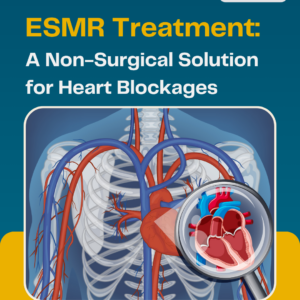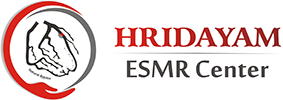Understanding ESMR Treatment: A Non-Surgical Solution for Heart Blockages
Introduction

Our heart works tirelessly every day, circulating blood and oxygen to every part of the body. But when the arteries that supply blood to the heart become narrow or blocked, it can cause chest pain, breathlessness, or fatigue. Traditionally, these problems are treated through surgery or angioplasty. However, in recent years, a non-surgical approach known as ESMR Treatment in Pune has gained attention as a gentle way to support heart health and improve blood flow naturally.
ESMR (Extracorporeal Shockwave Myocardial Revascularisation) is a therapy that uses mild sound waves to help the heart form new blood vessels. It’s designed for people with heart blockages who may not be ideal candidates for surgery. The main aim of this method is to stimulate natural blood circulation and reduce symptoms related to poor oxygen supply in the heart.
What Exactly Is ESMR Treatment?
ESMR stands for Extracorporeal Shockwave Myocardial Revascularisation. “Extracorporeal” means “outside the body,” showing that this procedure does not involve any surgery or incision. It’s performed using a specialised device that sends low-energy sound waves to specific areas of the heart muscle that receive less oxygen due to narrowed arteries.
These gentle shockwaves are believed to activate the heart’s natural repair system by encouraging the growth of new tiny blood vessels — a process known as angiogenesis. Over time, this may improve oxygen delivery and overall blood flow in the heart.
Who Might Be Advised of ESMR Therapy
This treatment may be considered for people who:
- Have coronary artery disease and continue to feel chest discomfort or breathlessness even after taking medicines.
- Cannot undergo bypass surgery or angioplasty due to age or other health issues.
- Want to explore non-surgical options for improving their heart circulation.
ESMR focuses on symptom relief and improved quality of life. It is not meant to replace emergency or life-saving procedures, but can serve as a supportive therapy alongside regular cardiac care.
What Happens During the Procedure
- Preparation: The patient lies comfortably while sensors locate the target area of the heart.
- Shockwave Application: Low-intensity waves are delivered to the chest area above the affected heart zone.
- Duration: Each session usually lasts about 20–30 minutes.
- Course: Multiple sessions are scheduled over a few weeks, depending on the individual’s condition.
- Aftercare: Since it is a non-invasive process, patients can return to normal activities soon after the session.
Because there are no cuts, stitches, or anaesthesia involved, recovery is quick and comfortable.
Benefits of ESMR
People who have undergone ESMR have reported improvements such as:
- Better blood circulation to the heart muscle.
- Reduced frequency of chest pain or tightness.
- Improved ability to perform daily tasks without fatigue.
- No hospital stay or long recovery period.
- Can be continued alongside medical treatment plans.
It’s important to remember that results can vary, and ESMR works best as part of an overall heart care plan recommended by a doctor.
Heart Blockage Treatment Without Surgery
With modern advancements, many heart-related problems can now be managed without surgical procedures. Heart Blockage Treatment Without Surgery involves lifestyle improvements, medications, and therapies like ESMR that focus on enhancing blood flow naturally.
These options are valuable for patients who prefer or need non-invasive solutions. They aim to reduce symptoms, support the heart’s oxygen supply, and improve daily comfort. However, all such treatments should be undertaken only under medical supervision after thorough evaluation.
Precautions and Important Points
Although ESMR is generally safe and well-tolerated, it might not be suitable for everyone. People with pacemakers, unstable heart rhythm, or recent heart attacks should discuss these conditions with their doctor before considering this therapy.
A detailed medical assessment is always necessary to decide if ESMR is the right option. It’s also essential to continue regular check-ups, follow prescribed medicines, and adopt heart-friendly habits for lasting results.
Supporting Heart Health Naturally
No therapy can replace the benefits of a healthy lifestyle. Regular exercise, a balanced diet, proper sleep, and stress management are key to keeping the heart strong. Avoiding smoking, reducing salt and sugar intake, and keeping cholesterol under control go a long way in preventing heart disease.
ESMR can complement these lifestyle steps by supporting natural circulation — making it part of a broader effort toward better heart wellness.
Conclusion
In recent years, non-surgical approaches like ESMR Treatment in Pune have shown that medical innovation can work hand in hand with the body’s healing potential. By using gentle shockwaves to encourage better blood flow, ESMR offers a safe and natural way to support the heart’s function for selected individuals.
While it may not replace surgery in every case, ESMR reflects the growing shift toward safer, less invasive cardiac care options. It helps spread awareness that improving heart health is not always about major operations — sometimes, it’s about guiding the heart to heal itself through natural biological processes and careful medical supervision.

Leave a Reply